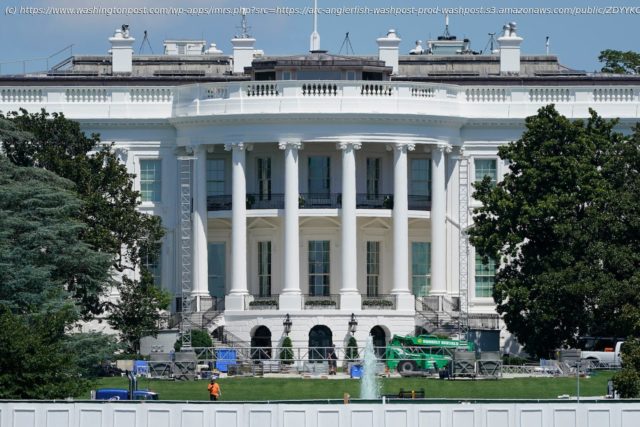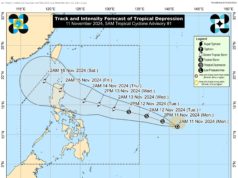Events will be mostly virtual, but not entirely. Some will be conducted in Charlotte, while satellite events, like President Trump’s address, will take place in Washington and elsewhere.
The Democrats’ convention is over, and now it’s the Republicans’ turn. It will be mostly virtual, but not entirely, with some events and convention business being conducted in Charlotte and satellite events, such as President Trump’s address, in Washington and elsewhere. The first night features Nikki Haley, former ambassador to the United Nations; Tim Scott, the only black Republican senator in Congress, who led a Republican push for policing reform this summer; and members of Congress who have been particularly loyal to the president, such as Reps. Matt Gaetz (R-Fla.) and Jim Jordan (R-Ohio). Probably the headline speakers are the president’s eldest son, Donald Trump Jr., and his partner, Kimberly Guilfoyle, as well as Mark and Patricia McCloskey, the St. Louis couple who were briefly charged for waving guns at Black Lives Matter protesters this summer. So far, the first night of the speakers does not appear particularly geared toward addressing the top issue dominating voters’ lives — and dragging down the president’s reelection chances: the coronavirus pandemic. Monday night will also feature a nurse in rural Virginia, although it’s not clear whether she will be talking about the pandemic or the president’s health-care plans (he wants the Supreme Court to get rid of the Affordable Care Act without a replacement). A coffee shop owner in Montana who qualified for a popular loan program meant for small businesses will also talk. Here’s what else we know about the schedule and how the convention will work. As mentioned, Scott, Gaetz, Jordan, Haley, Trump Jr., Guilfoyle and the McCloskey couple in St. Louis. Also: Ronna McDaniel: The Republican National Committee chairwoman Steve Scalise: The No.2 House Republican from Louisiana Vernon Jones: A controversial state representative in Georgia who is a Democrat and has endorsed Trump, a likely counter to the Republicans who spoke against Trump at the Democrats’ convention Amy Johnson Ford: A nurse in rural Virginia Tanya Weinreis: A rural Montana coffee shop owner Natalie Harp: An advisory board member for Trump’s campaign Charlie Kirk: A 26-year-old conservative activist who has written a book about Trump and founded a pro-Trump college organization. (Joe Biden is leading younger voters by double digits in most polls.) Kim Klacik: A GOP congressional candidate in Maryland Sean Parnell: A GOP congressional candidate in Pennsylvania who is trying to take back a district that voted for Trump in 2016 but that Democrats won in a special election with Rep. Conor Lamb shortly after Trump took office. (The district has since been redrawn to be friendlier to Democrats.) Andrew Pollack: The father of a Parkland, Fla., shooting victim who supports Trump The public-facing part of the convention will start Monday. It was originally scheduled to be four days long, with speakers all day and into the evening. But the convention will be significantly pared down because of the coronavirus pandemic. Instead of thousands of attendees, there will be a couple hundred. The actual nomination will happen in Charlotte on Monday, Aug.24, with events scheduled for the following three days and ending with Trump giving his speech on Thursday, Aug.27 — although from the White House, not with his party in Charlotte.






